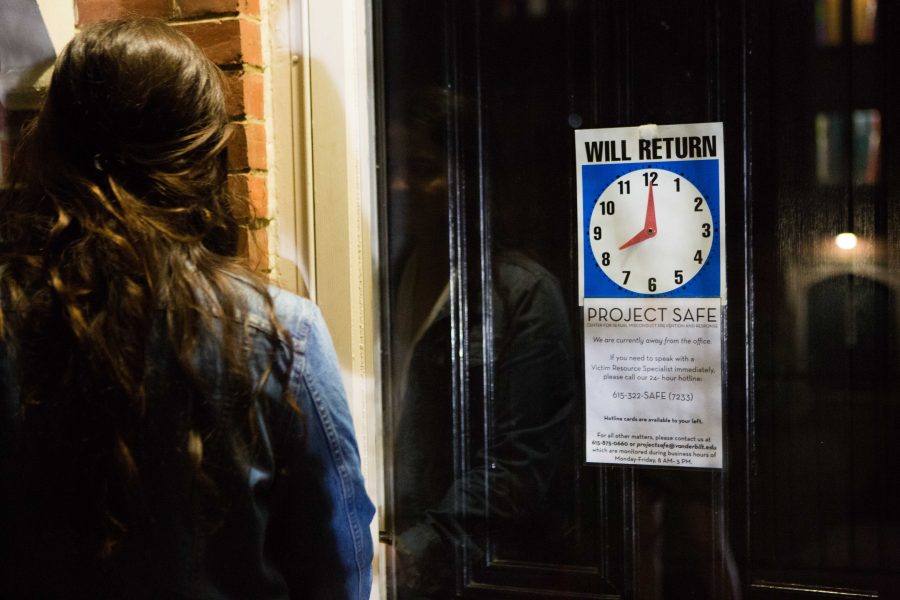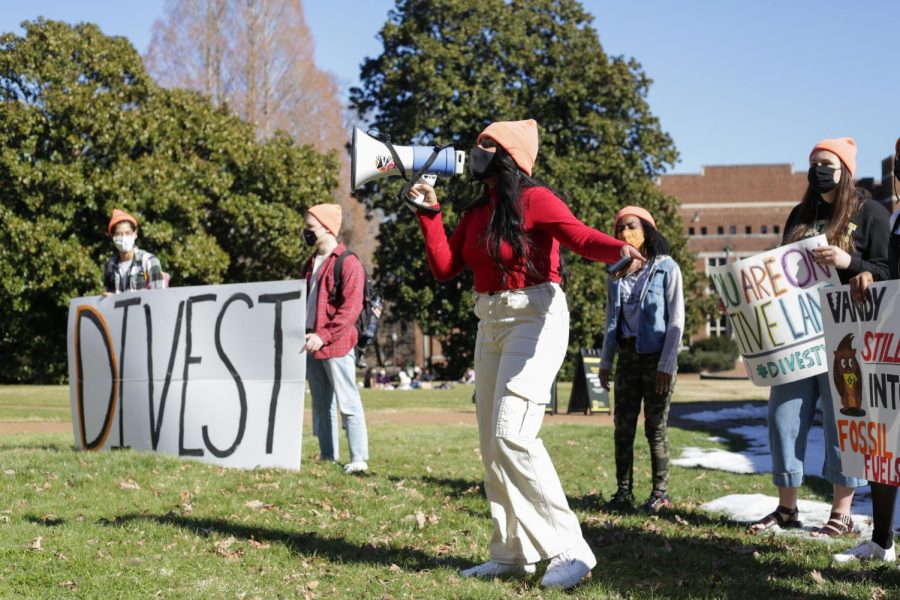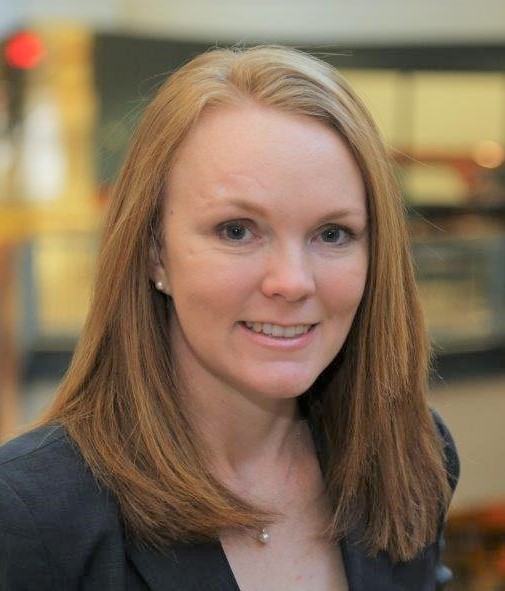As an autumn enthusiast, I was admittedly a little disappointed by the absence of fall weather on campus this school year. While the Vanderbilt University Arboretum was adorned with the traditional fall color palette for a few weeks in November, the weather still felt amiss. The official start date of this “Gilmore Girls”- “Harry Potter”-Pumpkin Spice Latte season was Sept. 23. Yet, for most of October and well into November, we saw high temperatures in the upper 70s. In December, and now January, we’re met with a full-blown icy-cold winter. Fall was conspicuously absent. This is not normal.
Our half-baked version of fall is just one of many consequences of climate change. This global phenomenon not only raises average global temperatures but also shifts the timings of seasons, affects the falling of leaves, changes the nesting patterns of our beloved squirrels and has a profound impact on our natural world. I say all this not only to express how deeply disheartened I am by the disappearance of my favorite season but also to point out that climate change is very pervasive.
Warming temperatures shorten growing seasons, which in turn diminishes crop yields, leading to food shortages. This has consequences for the prices of food and for the income of farmers who rely on crop profit to sustain their families through the winter. Such fluctuations in production are incredibly dangerous to a stable economy.
Policy plays a role here too. When our governments enact laws that allow fossil fuel corporations to continue emitting greenhouse gasses, they give the green light to practices that exacerbate the already precarious state of our climate. When our diminishing social safety net fails to account for rising sea levels, coastal ecosystems and communities bear enormous risks.
Despite these extensive interconnected consequences, the majority of Americans are not taught about the ubiquity of climate change — it permeates almost every aspect of our lives. Most of us are never taught about how climate change affects our field of interest and future careers. The lack of education and awareness around this issue makes it all the more dangerous.
At Vanderbilt, most majors, like economics, don’t require their students to take a class on climate change. This is despite the impact increasing temperatures have on the market, the role financial entities play in subsidizing fossil fuel companies and the impact corporations have on increasing greenhouse gas emissions. Not to mention that the majority of the United States’ current climate policies are market-based.
For other majors, such as public policy and chemistry, students are given the option to concentrate on classes that discuss the environment, but not specifically climate change, in relation to their field. However, students who simply do not wish to engage with the topic do not have to. Climate change isn’t one of those things that you can simply ignore because you don’t care about the topic. It affects you and your communities whether you like it or not.
A few departments don’t even offer a class on how climate change concerns their areas of study. The medicine, health and society major doesn’t have a single course about the health impacts of climate change. Yet, heat-related illnesses and resultant health problems are on the rise. The communication studies major lacks any course offerings on climate discourse, despite the pervasiveness of climate denial and the role the media plays in disseminating climate knowledge. While there may be some limited discussion of climate change-related issues in the classes offered in these respective disciplines, this is simply not sufficient given the scale of the climate crisis.
Vanderbilt’s Department of Sociology tackles environmental learning in a rather unique way: a significant portion of the major’s requirements come from classes taken in three out of four core areas, one of which concerns the environment. It is important to note, though, that this category also explores population, health and migration — all of which are relevant in this context, but are not explicitly about climate change. While this model allows more students to engage with the topic, it is still not iron-clad. Again, students could just avoid the category if they do not want to take it.
Anthropology — the study of human civilization — has no requirement on what is, arguably, the greatest threat to humanity: climate change.
Indeed, Vanderbilt’s three majors that are centered around the environment — climate and environmental studies, environmental sociology and earth and environmental sciences — do a decent job addressing the universality of climate change. However, students in these majors are presumably already interested in the field and thus would most likely seek out information related to climate change regardless. These students being the only ones on campus required to meaningfully engage with climate change in the classroom does little to set the momentum towards a more climate-aware society.
I recognize that the nature of course selection at universities is interest-based, in that students, theoretically, choose the classes that most interest them. However, even the liberal arts requirements of AXLE and Peabody College encourage us to explore topics that are not strictly aligned with our intended majors. To truly tackle climate change, we have to meaningfully engage with it in ways that may be uncomfortable or unfamiliar to us. When students enter the workforce, climate change and its impacts become unavoidable. Whether they pursue a career in politics or medicine, they will be met with constituents and patients who rely on disaster aid and relief as extreme weather events become more common. Required classes are a small price to pay when compared to being unequipped to handle the climate crisis.
The issue is not that these majors do not offer any courses related to climate change in their disciplines, although that is the alarming reality for several of them. It is more so that they do not require their students to engage with the topic. It’s rather ironic that Vanderbilt leads a multidisciplinary global climate change network that claims to be committed to addressing the challenges of climate change, yet its own curriculum continually falls short in ensuring its students have the tools to do just that. How can we expect to lead others in this fight if we aren’t even prepared ourselves?
Climate change has had and will continue to impact all walks of life. It is imperative that we develop a robust curriculum that teaches our future scholars, leaders and practitioners to grapple with these new realities, in the same way that Vanderbilt mandates a writing curriculum that familiarizes students with the complexities of professional writing and discourse.
Climate change is a problem that requires the collective action of each and every one of us to mitigate. And action requires knowledge. Vanderbilt, as a prominent research institution and leader of a multidisciplinary climate change initiative, has a responsibility to its students — to teach us how to cope with this crisis that we all face. The alternative that we remain woefully under-informed is unacceptable and a disservice to future generations.









